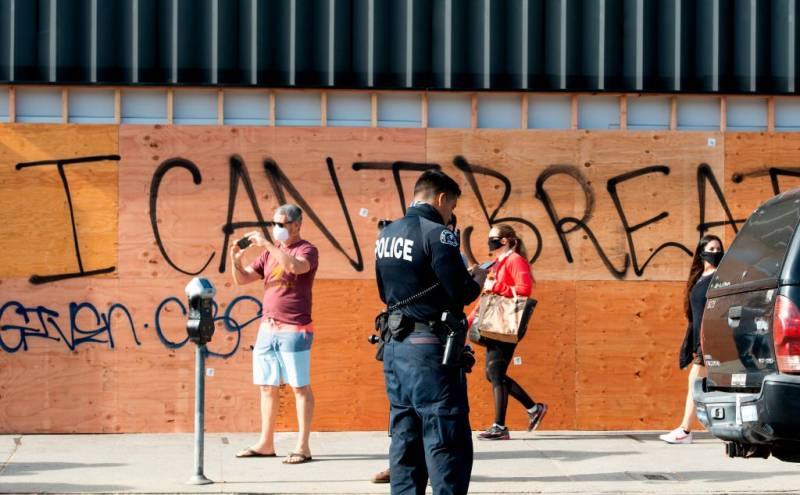Assembly Speaker Anthony Rendon, D-Lakewood, on Monday endorsed a bill that would make it illegal to use chokeholds and a carotid artery restraint tactic to forcibly detain a suspect.
“We … have to change a culture of excessive force that seems to exist among some members of law enforcement,” Rendon said at a news conference. “This bill will end one brutal method that police use for restraining people.”
The method, also known as a sleeper hold, involves applying pressure to the sides of the neck with an arm. It can almost immediately block blood flow in the carotid arteries and render someone unconscious, but can also cause serious injury or death if the blood flow is restricted for too long.
“These methods and techniques are supposed to save lives, but they don’t — they take lives,” said Mike Gipson, D-Carson, who is introducing the measure.
Gipson, a former police officer, was among lawmakers who said they hope other states will follow California’s lead in banning the hold.
Colorado and Illinois allow use of the hold only if police deem lethal force to be justified, said Amber Widgery, a criminal justice analyst with the National Conference of State Legislatures. Tennessee allows its use if other means of restraint have been ineffective. Washington, D.C., bans a similar trachea hold but permits the carotid hold under circumstances where lethal force is allowed.
Other states use more general legal language, Widgery said. It’s not clear if California’s proposal will allow any exceptions, as Gipson has yet to release the actual language of his bill.
Gov. Gavin Newsom on Friday said he would sign Gipson’s bill if it is approved by lawmakers, and ordered the state’s police training program to stop teaching officers how to use the neck hold.

